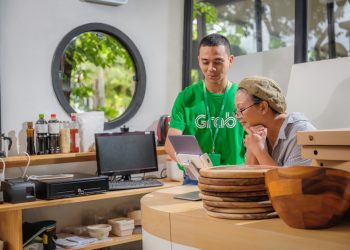No products in the cart.
Unlocking Global Opportunities: The Value of International Experience
Exploring international experience can be a game-changer for your career. Learn how to adapt and thrive in a global marketplace.
London, UK — Imagine stepping off a plane into a city where you don’t speak the language, where the culture is vibrant yet foreign. This feeling of exhilaration and anxiety is the first step into a world of international experience, a vital asset in today’s interconnected job market. As globalization continues to redefine the landscape of work, the ability to navigate diverse cultures and markets has become essential.
Global competence is not just a buzzword; it’s a necessity. Employers increasingly seek candidates who can thrive in multicultural environments, and those who have international experience often stand out in job applications. According to a recent study by the Institute for the Future, 85% of jobs that will exist in 2030 haven’t been invented yet, creating a demand for adaptable individuals who can think critically and collaborate across borders.[1]

But what exactly does it mean to be globally competent? At its core, it involves understanding and appreciating cultural differences, effectively communicating across cultures, and adapting your behavior to fit diverse environments. This requires preparation, both mentally and practically. For many, the first step is identifying opportunities for international experience, whether through study abroad programs, internships, or even remote jobs with global teams.
Take Sarah, a recent graduate from Boston University. She spent a semester in Barcelona studying international business. “It was more than just learning about different markets,” she recalls. “It was about immersing myself in a new culture, learning to navigate public transport, and even making friends from all over the world. That experience opened my eyes to how interconnected we all are.” Sarah’s international stint not only enriched her education but also led to her landing a job with a multinational company, where her global perspective is a significant asset.
This can include reading about the country, learning basic phrases in the local language, and understanding the cultural norms and business etiquette.
Identifying the right opportunities is crucial. Universities often have partnerships with institutions around the world; online platforms like LinkedIn and Intern Abroad can help connect you with internships or job placements abroad. However, preparation goes beyond just finding a placement. It’s essential to develop a cultural awareness toolkit. This can include reading about the country, learning basic phrases in the local language, and understanding the cultural norms and business etiquette. For instance, knowing that in Japan, bowing is a sign of respect, or that in Brazil, personal relationships often precede business discussions, can make a world of difference.
Once you’ve secured an opportunity, the next challenge is cultural adaptation. It’s easy to feel like an outsider, but embracing the discomfort can lead to growth. John, a software engineer from Toronto, faced this head-on when he relocated to Singapore for a job. “The first few months were a struggle,” he admits. “I felt lost in translation, both linguistically and culturally. But as I made an effort to engage with locals and learn about their customs, I began to feel at home. It taught me resilience and adaptability.”
Your international experience doesn’t have to be a long-term commitment. Short-term assignments, internships, and even remote jobs with global teams can provide valuable insights and connections. The gig economy has made it easier than ever to collaborate across borders, and platforms like Upwork and Fiverr allow you to work with clients from different cultures, honing your global competence from the comfort of your home.
Building an international network is another crucial aspect of leveraging your global experience. Every connection made abroad can be a bridge to future opportunities. Attend local meetups, join expat groups, or participate in online forums related to your field. The relationships you foster can lead to mentorship opportunities, job leads, and collaborations that might not be available in your local market.
Yet, despite the myriad benefits, pursuing international experience can come with challenges. Visa regulations, financial constraints, and personal responsibilities can all pose significant barriers. However, many organizations offer scholarships or financial aid for students seeking international experiences. Additionally, remote work has opened doors for those unable to travel. “I never thought I’d work with teams in Europe while sitting in my living room in New York,” says Lisa, a project manager whose company embraced remote work during the pandemic.
Building an international network is another crucial aspect of leveraging your global experience.
As you consider your path forward, remember that the world is your oyster. The ability to adapt, understand, and thrive in diverse environments is an invaluable skill set in today’s economy. The digital age has made it possible to connect with people from all corners of the globe, and the demand for globally competent individuals is only going to increase.
In this era of unprecedented change, your international experiences can set you apart in a competitive job market. So, whether it’s through a semester abroad, a short-term project, or remote collaborations, seize every opportunity to broaden your horizons. The future belongs to those who can navigate the complexities of our global landscape.











